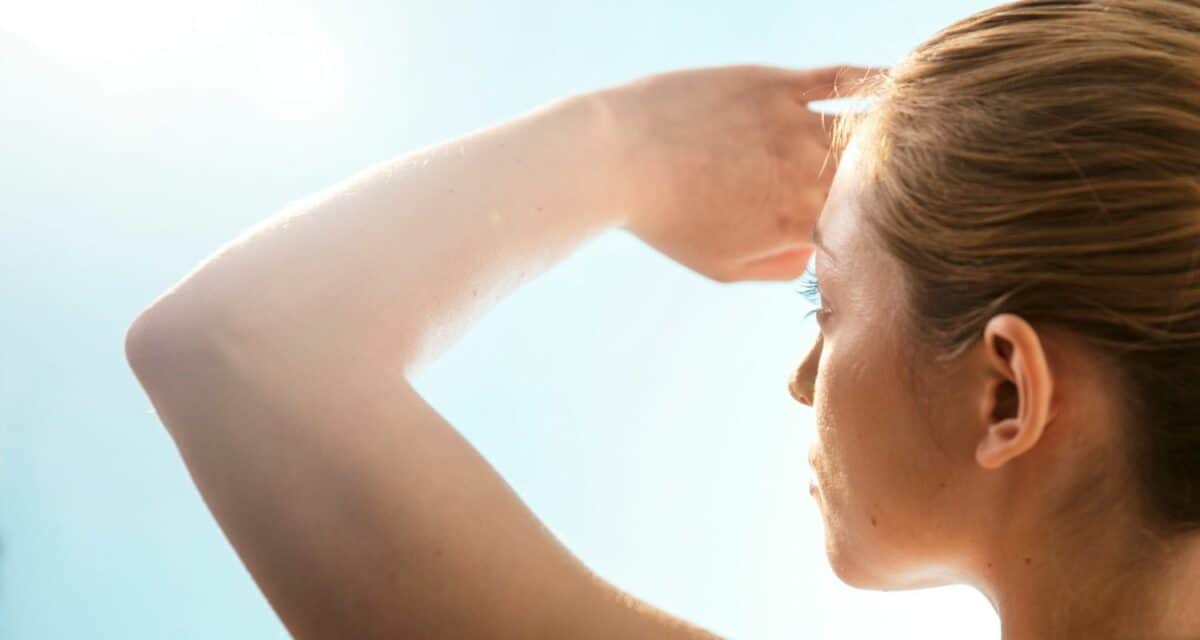- Making the Most of Your Patio with Stylish and Functional Shade Solutions - February 16, 2025
- How Shade Screens Can Help Reduce Cooling Costs with SRP Rebates - February 5, 2025
- The Health Benefits of Using Sunshades - January 26, 2025
Spring is in full swing and before things get scorching hot out here in the Sonoran, it’s that fine time to get out and enjoy the sun. The media is full of perfectly tan movie stars and celebrities but be mindful to think twice before trying this at home. The sun is powerful. It not only heats our world and controls our seasons but can have a big impact on our skin. You may think you know all about how to protect yourself from the sun, but out here, the sun is so strong, you may want to review what you thought you knew. Here are some common myths about sun exposure and the truth you need to know to protect you and your family with confidence.
Myth: Higher SPFs offer significantly more protection.
You’d never leave the house without sunscreen out here, however there are so many options, which one is the best? Not all sunscreens are created equal. Some have higher SPFs than others and that surely means more protection—right?! Well SPF stands for sun protection factor. It’s the measure of how much UV gets through the screen. The higher the number, the less UV passes through. However, an SPF of 30 allows one-thirtieth or 3.3% of UV to reach your skin or will block 97 percent. Higher SPFs will block just 1 to 2 percent more, but no sunscreen can block 100 percent. As a rule any sunscreen 30 SPF or higher is enough protection—just keep in mind that you have to reapply every two hours or less regardless of the SPF!
Myth: All clothing will block the sun’s rays.
When it’s hot outside the last thing you may want to think about is wearing long sleeves but it can make a difference in how well your skin is protected from the sun. However, like sunscreen, the type of fabric and color of your clothes makes a big difference. Darker and brighter colors of clothes will absorb more UV rays, and thicker fabrics will offer more protection. Still, the thought of dark thick clothes may make some of us more heat sensitive people to want to pass out from imagined heat exposure. You can still get coverage from the sun and breathability with fabrics with a UPF designation on labels for desert outdoor fashion. Like sunscreen, the higher the number of UPF the more protection. The Skin Cancer Foundation deems anything 50 UPF and higher excellent!
Myth: Wearing sunscreen causes vitamin D deficiency.
Vitamin D is an essential vitamin for us which we chiefly absorb from the sun. A deficiency of vitamin D can cause depression, lack of energy, loss of bone density and a compromised immune system. While there is no shortage of vitamin D out here with an average of 300 days of sun a year in this part of Arizona, don’t worry about lessening it by using sunblock. Even when you are regularly applying sunscreen, an even higher SPF will allow 2 to 3 percent of the sun’s UVB to reach your skin—enough to provide the vitamin D you need.
Myth: When the clouds are out, I can’t get sun damage
For anyone that has ever had to learn this the hard way, we apologize profusely. On cloudy days around 90 percent of the sun’s rays can still penetrate your skin causing sunburn, skin cancer and premature aging. The effects of the sun are even more amplified around the pool or near sand where they reflect and amplify the effects of the sun.
Myth: My makeup has sunscreen, so I’m covered.
For those of us who love a foundation sunscreen beauty routine already we may feel like we’ve unlocked the secrets of beating the sun while staying gorgeous. Think again! While a foundation with SPF 30 on your face will give some sun protection, it won’t work as well as you wish. Make sure to use a traditional sunblock on your face as well and don’t forget the back of your neck and top of your ears!
CC Sunscreens
One more thing about the sun—it can affect you when you are inside too. While the UV rays that cause your skin to burn won’t affect you, the ones that cause skin aging and degrading of your furniture do. With window screens from CC sunscreens, they block out 90 percent of harmful UV rays protecting you and your home. Contact us to find out more!

